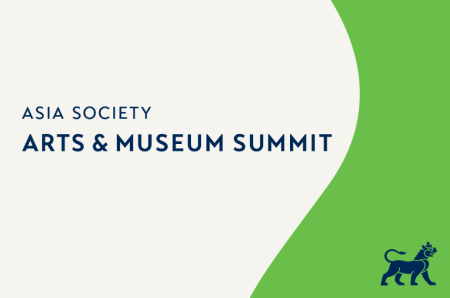ACTIONS
- Protect and safeguard cultural and natural heritage
- Learning and educational opportunities
- Cultural participation/social inclusion
- Sustainable tourism
- Support research
- Employment (recruiting, training, safety)
- Energy consumption, greenhouse gas emissions
- Waste management and reduction
- Transport (forms of, energy use)
- Commercial activities including copyright and IP
- Governance and management
- Security, disaster preparedness, risk reduction
- External partnerships and collaborations
- Sign-post to other resource (database)
- Recorded lectures and panel discussions
Asia Society Arts and Museum Summit Website
- Asia Society
The website is created by the Asia Society for its bi-annual event ‘Arts and Museum Summit’. It contains recorded lectures and panel discussion videos on the latest arts and museum issues about and in Asia. The most recent summit was dedicated to the theme ‘Reimagining Museum Narratives in the 21st Century’ with a focus on decolonialisation.
Avaiable in
- English
SDGs LINKAGES
The website provides insights into the latest Asian arts and museum scene. Users based in Asia and beyond will find this resource useful as key points highlighted in the lectures and panel discussions will allow them to reflect on actions that can be taken in the future and improvements that can be made. Each edition’s theme is not the same so thematically it has a diverse range. However, as a tool, this website helps address the following SDG targets: 4.7 (education for sustainable development), 10.2 (empowerment and promotion of social, economic and political inclusion of all), 11.7 (museums as safe and inclusive public spaces), 17.6 (enhancement of North-South and international cooperation), and 17.16 (enhancement of global partnership knowledge and expertise sharing and mobilization).
Click on the SDG Target to discover Our Collections Matter indicators
-
Our Collections Matter indicators:
- Numbers of people in each type of programme drawing on collections from different demographic groups.
- Increases in numbers of people in each type of programme from different demographic groups.
- Proportion of people involved in such programmes in relation to overall audience size.
- Evidence that learners have acquired knowledge and skills to promote sustainable development.
-
Our Collections Matter indicators:
- Collections development to ensure that collections effectively meet the needs of all, irrespective of age, sex, disability, race, ethnicity, origin, religion or economic or other status.
- Number and proportion of educational and participatory programmes that promote participation irrespective of social or other status.
- Numbers and proportions of people making use of collections in relation to the demographic of the local population.
- Numbers and proportions of people involved in focused programmes aimed at promoting social, economic and political inclusion.
- Numbers and proportions of people from different demographic groups involved in decision-making processes relating to collections and collections-based institutions.
- Number and types of partnerships that build relationships with marginalized groups, individuals and communities.
-
Our Collections Matter indicators:
- Numbers of people accessing collecting institutions from different demographic groups, notably women, children, older people and persons with disabilities.
- Increases in numbers of people accessing collecting institutions from different demographic groups.
- Measures taken to remove barriers to access green and public spaces.
- Extent of green space provided by collections institutions.
-
Our Collections Matter indicators:
- Number and/or increase in number, and diversity of global and international multi-stakeholder partnerships that share collection-related knowledge, expertise, technology and financial resources to address the SDGs, or that otherwise involve collections-based organisations and institutions.
- Number and/or increase in number, and diversity of global and international multi-stakeholder partnerships involving developing countries that share collection-related knowledge, expertise, technology and financial resources to address the SDGs.
-
Our Collections Matter indicators:
- Number and diversity of North-South, South-South and triangular co-operations and projects to support access to science, technology and innovation and enhance knowledge-sharing on mutually agreed terms.

